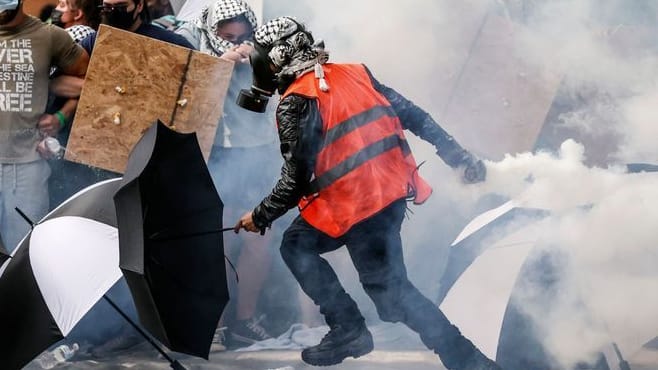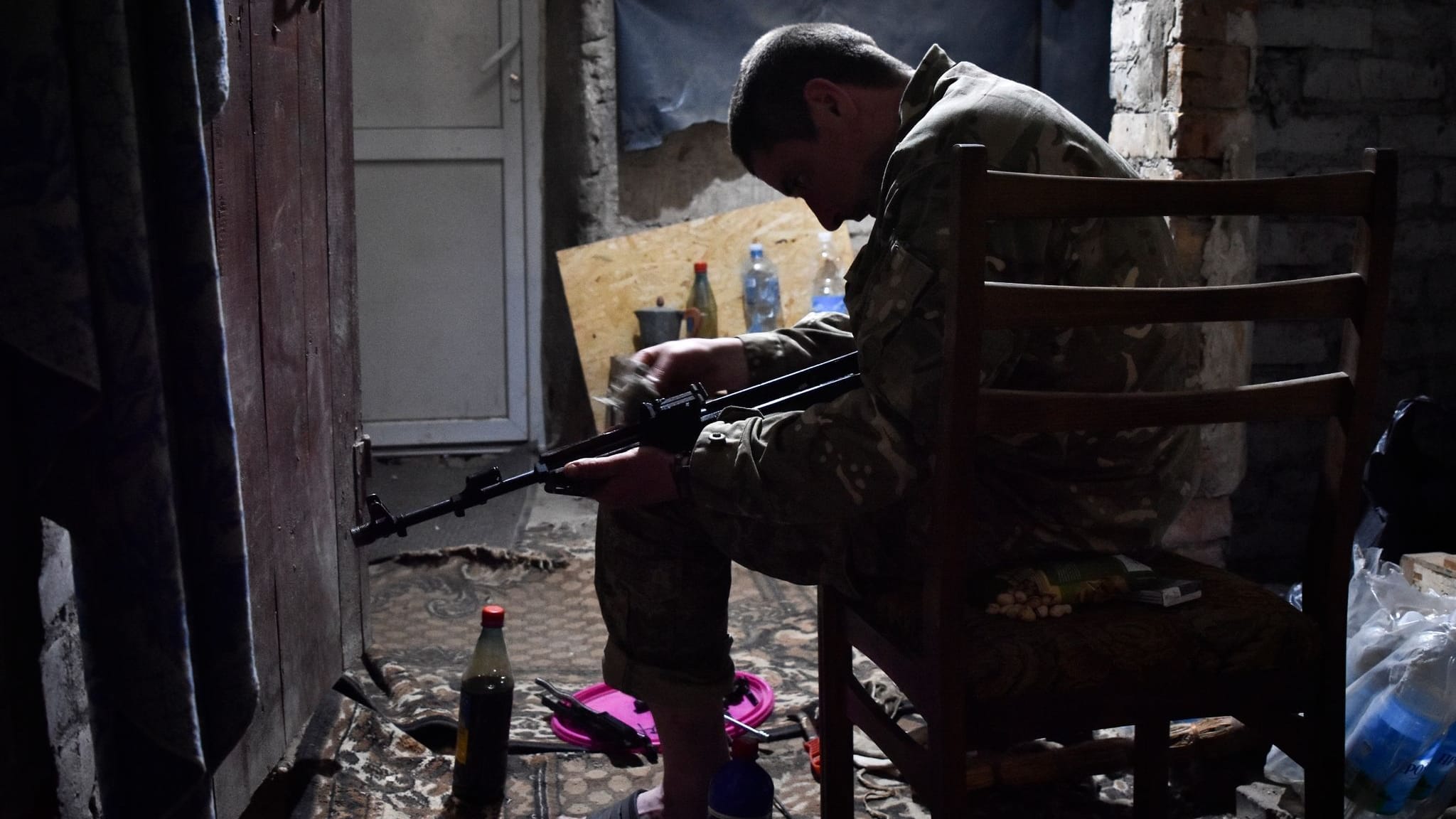After 20 years, Luis Alberto Urrea’s heart sinks a little whenever sales of his most famous work, “Devil’s Highway,” increase.
When they do, it typically means that something horrific has happened at a border crossing somewhere, and to have his Pulitzer-nominated work tick up in popularity is tough, his wife, Cindy Urrea, said after the author gave a talk Thursday afternoon at Indiana University Northwest during its annual One Book, One Campus, One Community program. The two wish with all their hearts that borders weren’t still so topical, she said.
There was a time where they really weren’t, but then 9/11 happened, which was shortly after the country’s oldest publisher, Little and Brown, contacted Urrea to write a book about the “Yuma 14,” a group of Mexican men who died crossing the border into Arizona via a stretch of highway where it can be as hot as 97 degrees after the sun goes down, he told a group of 30 students and faculty.
Luis Urrea, who’d grown up near the U.S.-Mexico border and had written so much about it already, really didn’t want to at first, mostly because he feared having to deal with border patrol.
Pulitzer Prize-nominated author Luis Alberto Urrea reads from his novel, “The Devil’s Highway” at Indiana University Northwest in Gary on Thursday, March 28, 2024. (Michael Gard/for the Post-Tribune)
Understanding his reticence, the agent then gambled on the ultimate play: He asked Luis Urrea if he trusted anyone else to write the book.
“I immediately said ‘No!’ and he said, ‘Ok, I’ll get the contract over to you!’,” Luis Urrea said, laughing. “Professors, remember that trick.”
The one real blessing he had going into writing the book was that the event was so heartbreaking, everyone – residents, survivors and border patrol agents – wanted to talk about it, he said. He recalled one evening when he went out to eat with one of the border patrol agents with whom he’d become tight, and the agent mentioned that “they never would’ve found the baby.”
Confused, Luis Urrea asked him to elaborate. The agent told him that a family coming in was walking on some train tracks and got hit by a train; had they not looked up, the baby would’ve remained in the tree they found them in.
Another time, the agent was joking with two men who were propping up a third man walking along the same tracks. It took the agent a minute to realize the man in the middle had his feet cut off by the train, and he was still trying to walk, Luis Urrea said.
Pulitzer Prize-nominated author Luis Alberto Urrea speaks at Indiana University Northwest in Gary on Thursday, March 28, 2024. (Michael Gard/for the Post-Tribune)
“Then he said, ‘Let’s go have a steak,’” Luis Urrea recalled. “Hanging with the border patrol guys haunted me because they would tell me stuff, but that one agent told me this: ‘I want you to know something: You know how in life that 80% (of people) is just trying to get through this life, and 10% are angels and 10% are devils? That’s the same with border patrol, but God help the bottom 10% if we find them.’”
The Urreas have continued to watch the struggles of immigration and the way countries are learning – or not learning – how to handle what’s going to become an even bigger issue as climate change continues to loom. Mexico, for example, has never had a plan for refugees, and people who help them can get in trouble.
“They’ve installed ‘brushes,’ these pillars that if your limbs are sticking out of a train car, they will get torn off,” Luis Urrea said. “Germany doesn’t know what to do with their refugees. It’s like a migration of birds, and I don’t know what the solution might be.”
But unless you live on the border, you can’t possibly understand what the issues are, Cindy Urrea said.
Pulitzer Prize-nominated author Luis Alberto Urrea speaks with readers at Indiana University Northwest in Gary on Thursday, March 28, 2024. (Michael Gard/for the Post-Tribune)
“I never saw it as clearly as when we went to Sweden. You go into thinking that Sweden is going to be blonde hair, blue-eyed, but it’s very clearly not,” she said. “Is Sweden still Sweden if half of it is Ethiopian? In the United States, we’ve prided ourselves on ‘Bring me your tired masses,’ so this shouldn’t be an issue for us, but in Europe, it’s different, and I think everyone’s trying to catch their breath and figure out what it’s going to look like.”
Luis Urrea – who saw “Devil’s Highway” be the first book banned in Arizona for being “satanic” and “un-American,” and was exposed to death threats against him and his family – often feels like he’s in a losing battle. And yet, there’s always hope, he said.
“You know that Richard Pryor movie where the bus he’s driving breaks down and he goes to look for help after telling the kids he’s driving to stay put, and he eventually realizes the Klan is following him? The screen goes dark, and then you see the Klansmen helping him fix the bus – what if we just had a chance to cut the B.S. and just reach a hand out?” Luis Urrea said.
“There is a moment that we’re all just people together, and it means a lot to me when we can just be that.”
Michelle L. Quinn is a freelance reporter for the Post-Tribune.





